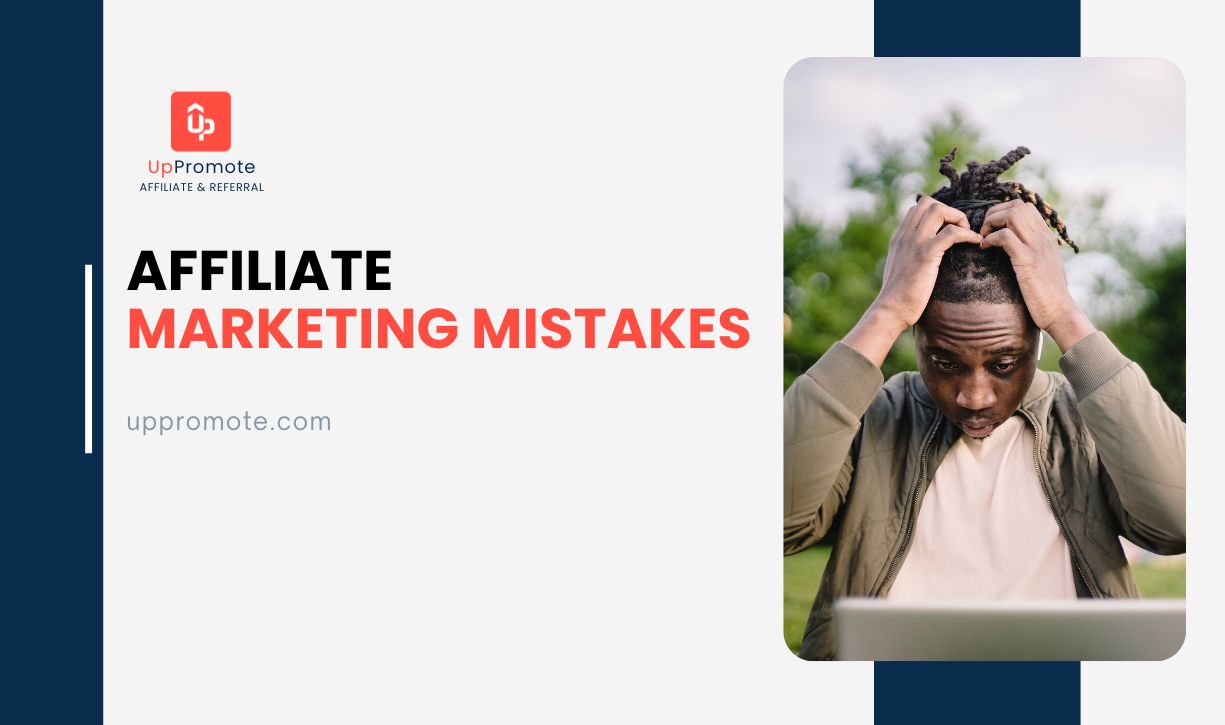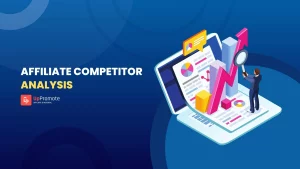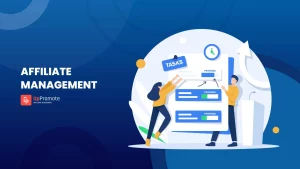Affiliate marketing is becoming more popular nowadays! The reason is because it is the fast and effective way to make money. As a result, the market will be saturated, and the difficulty of competition will also be high.
The affiliates easily make mistakes if they want to generate money with affiliate marketing as fast as possible. So, in this comprehensive guide, we’ll look closely at 17 affiliate marketing mistakes. Not only that, we also offer practical solutions to avoid them.
17 Common Affiliate Marketing Mistakes That You Should Know And Avoid
These are some of the common biggest mistakes in affiliate marketing you can make. Please read carefully to avoid them!
Have an unrealistic goal
Setting the right goals is a cornerstone of success. Goals act as a roadmap, guiding your efforts and helping you measure progress. However, one of the most common mistakes in affiliate marketing is setting unrealistic goals. So surprisingly, it happens to both beginners & experienced affiliate marketers!
Realistic goals in affiliate marketing are targets that may be too difficult to achieve within a specific time period! It also requires resources and abilities that are currently unavailable.
Example: You are a new affiliate marketer and aim to earn $10,000 per month within the first three months. You have chosen a fashion skirt niche because you love every skirt. But even it is a competitive niche and needs more experience in digital marketing and SEO strategy. This goal is unrealistic.
Common Unrealistic Goals in Affiliate Marketing:
- Earning a very high income in the first few months.
- Expecting to drive massive high quality traffic to affiliate links without established SEO or a significant online presence.
- Anticipating instant success from every affiliate marketing campaign.
- Believing that affiliate marketing requires minimal effort for substantial returns.
Solutions to Unrealistic Goal Setting:
First, you should conduct thorough research and read case studies. By learning from established marketers, you can gain valuable insights into the best strategies & tactics in this space.
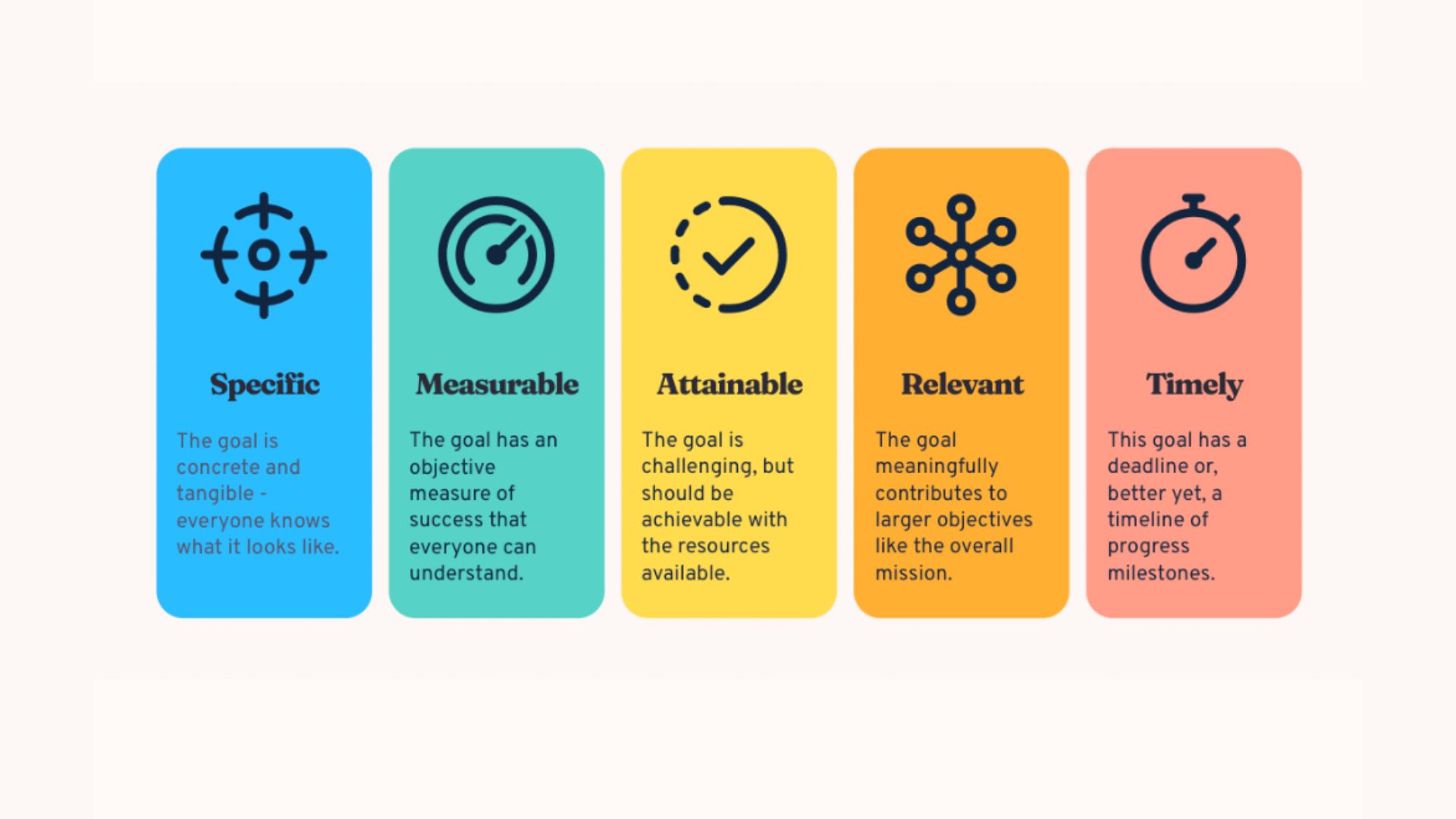
Once you have a deep understanding, it’s time to set SMART goals. These goals include Specific, Measurable, Achievable, Relevant, and Time-bound.
Not willing to learn and gain more knowledge
Affiliates may avoid learning due to the belief that affiliate marketing is a quick & easy way to earn money and due to the comfort zone trap. The abundance of information can also lead to analysis paralysis.
Solution for Overcoming the Reluctance to Learn:
Publishers should understand that the industry is constantly changing. It’s essential to have a positive attitude towards growth and never to stop learning.
To keep up with the latest strategies and tools, affiliates should read industry blogs! Attending webinars and taking online courses are also essential. Plus, joining online communities or forums will help share knowledge and experiences with others in the field.
It’s best to focus on one topic at a time, such as SEO, informative content creation, or social media marketing. By breaking down the learning process into more minor, manageable pieces, affiliates can learn more effectively! And, of course, it can lead to avoid feeling overloaded.

Essential Areas of Continuous Learning and Knowledge Update:
- Market trends and consumer behavior. This knowledge helps affiliates stay relevant & tailor their strategies! So it can meet the evolving needs of the target audience.
- SEO and Content Marketing. Affiliates need to stay informed about the latest algorithms of search engines.
- Technological advancements. Keeping abreast of new affiliate marketing tools and technologies! AI tools or new social media platforms can give affiliates a competitive edge.
- Data Analysis and Interpretation. Learning to analyze and interpret data effectively can significantly improve decision-making and strategy formulation. Moreover, understanding analytics enables affiliates to optimize their campaigns for better performance.
Follow blindly what other successful marketers do
Some affiliate marketers often fall into the trap of mimicking successful marketers to achieve similar success. It is due to a perceived shortcut to success, overwhelm, and confusion. The reasons also are lack of experience and a misunderstanding of success factors.
The solution we offer:
You should never forget that replicating the strategies of others may only work in some situations. And, of course, it may not lead to long-term affiliate marketing success. Rather than copying their methods outright, affiliates should take the time to analyze why and how they work.
The key is to know the underlying principles behind successful campaigns! It would be best to consider how to modify them to suit your context. Seeking mentorship or advice is a good idea, as personalized guidance can be more effective than simply observing from afar.
Choose low-buying intent niches
Low-buying intent niches are those where the audience primarily seeks information or entertainment but is not necessarily looking to purchase.
While these niches can generate significant traffic, they often result in lower conversion rates! Consequently, lower earnings for the affiliate.

Solutions for Choosing the Right Niches:
- Conduct thorough market research. Marketers should understand better the market demand, audience interests, and buying patterns. You can identify what people are looking for and what they’re willing to spend their money on.
We recommend using tools like Google Trends, keyword research, and market analysis reports.
- Identify high buying intent keywords. Focus on long tail keywords that indicate a readiness to purchase, such as “buy,” “deal,” “discount,” or specific product names. These keywords often signal that the searcher is closer to making a buying decision.
- Evaluate the competition. While high competition can be daunting, it can signify a healthy market with high buying intent. We recommend using competitive analysis to balance demand and competition levels.
- Understand your audience’s pain points. Marketers should try to get inside customers’s heads and figure out what they’re struggling with, what they need, and what they want. Niches where the audience actively seeks solutions to specific issues tend to have higher buying intent.
Focus too much on promoting costlier products
Many marketers make the mistake of solely focusing on promoting high-ticket items. Why? Because of assuming they will result in larger commissions. But more expensive products can indeed offer higher earnings per sale. This approach often overlooks several critical factors that can ultimately impact overall success.
Solutions for a Balanced Product Promotion Affiliate Marketing Strategy
Firstly, marketers should understand the audience’s budget. The crucial step is to research their financial capacity and willingness to spend on high-ticket items. You will increase the likelihood of conversions by tailoring your product recommendations to match their budget.
Another solution is to diversify your range of products. Instead of focusing solely on high-ticket items, include a mix of high-end and affordable products in your promotions. This diversification caters to a wider audience and can lead to more consistent sales.
Finally, when promoting expensive affiliate products, why don’t you highlight the value they offer over the price? Focus on the benefits and make a compelling case for the higher cost by emphasizing unique features that justify the price. By doing so, potential customers can understand why the product is worth the investment.
Not deeply understanding what you’re promoting
Affiliate marketers often need to learn more about what they’re writing. It’s important to remember that your readers are intelligent and have access to a wealth of information. They’ll quickly catch on if you need to know what you’re discussing.
You don’t need to be an expert on every product you promote, but you do need to understand it well enough to convince others to buy it. Unfortunately, many publishers overlook the importance of deeply understanding their niche.
So, how can you avoid this problem?
Start by subscribing to industry-leading blogs, forums, and Google alerts to update on your niche. You can also visit sites like Quora or Reddit to see what questions people ask about your topic.
But most importantly, make sure you know what is necessary to earn your readers’ trust and engagement through your high-quality content. It will help you in the long run, both in terms of conversions and page engagement.
Focus on earning money rather than giving actual value
As an online marketer, it’s easy to get caught up in the mindset of making affiliate sales and conversions your top priority. However, this approach often leads to creating bad content and achieving poor results.

The solution we recommend:
When writing, marketers should focus on the reader’s intent and needs and put their interests first. Rather than just explaining features, highlight the benefits that the user will receive.
It’s also vital to avoid user friction wherever possible. Although banner ads can have their advantages, they also have the potential to annoy visitors and even cause them to leave your website.
Pop-ups are another example of content that can be seen as intrusive by Google. It can have a negative impact on your website’s ranking factor.
Ignore the readability of the content
Our brains are wired to process visuals first, so we look at pictures before reading the surrounding text. That is why ensuring that the text in your creative banner is just as attention-grabbing as the visuals are crucial.
The solutions to avoid neglecting the readability of a piece of content
It would be best to understand that the picture and text have different roles but the same goal! It encourages the visitor to click on the banner or take other action. So, how do we achieve this goal? It’s essential to ensure that the style of both the picture and text are consistent.
For example, the text should be lighthearted and engaging if the picture is humorous and playful. On the other hand, if the image is formal and severe, the text should reflect the same tone.
By playing with different options like teasers, discounts, bonuses, seasonal offers, price comparisons, etc., you can find the best way to grab the user’s attention and encourage them to take the desired action.
Neglect evergreen content
As an affiliate marketer, you know that evergreen content is one of the best passive income sources. It’s content that remains relevant to readers over a long time. As a result, it allows you to earn clicks and money without constantly creating new content.
However, it’s important to remember that evergreen content isn’t necessarily eternal. It can become outdated and lose value if you don’t update it regularly. That means that even if the information in the article is still helpful, it may be challenging to find in search results.

The solutions we offer:
Keeping track of all your promotional content and updating it as needed is essential. It includes updating the text and ensuring it is optimized for search engines.
Plus, you should regularly update and optimize your evergreen content! So, we can 100% guarantee that it will continue to drive traffic and generate income for years.
Target highly competitive keywords
Affiliates may think that targeting highly competitive keywords can increase traffic and conversions! The reason is because of their widespread usage. However, it is imperative to have the right strategy in place.
It’s easy to understand that using only the most popular keywords is a common approach in affiliate marketing. However, you must also focus on targeting the relevant or entity keywords! Sometimes, thanks to these keywords, the game will be changed!
The solutions we offer to avoid this mistake
You can use the most frequently used keywords while incorporating less competitive ones. Doing so will ensure your campaign gets noticed among the plethora of similar offers. Using less competitive keywords can make your campaign more noticeable and give it a better chance of success.
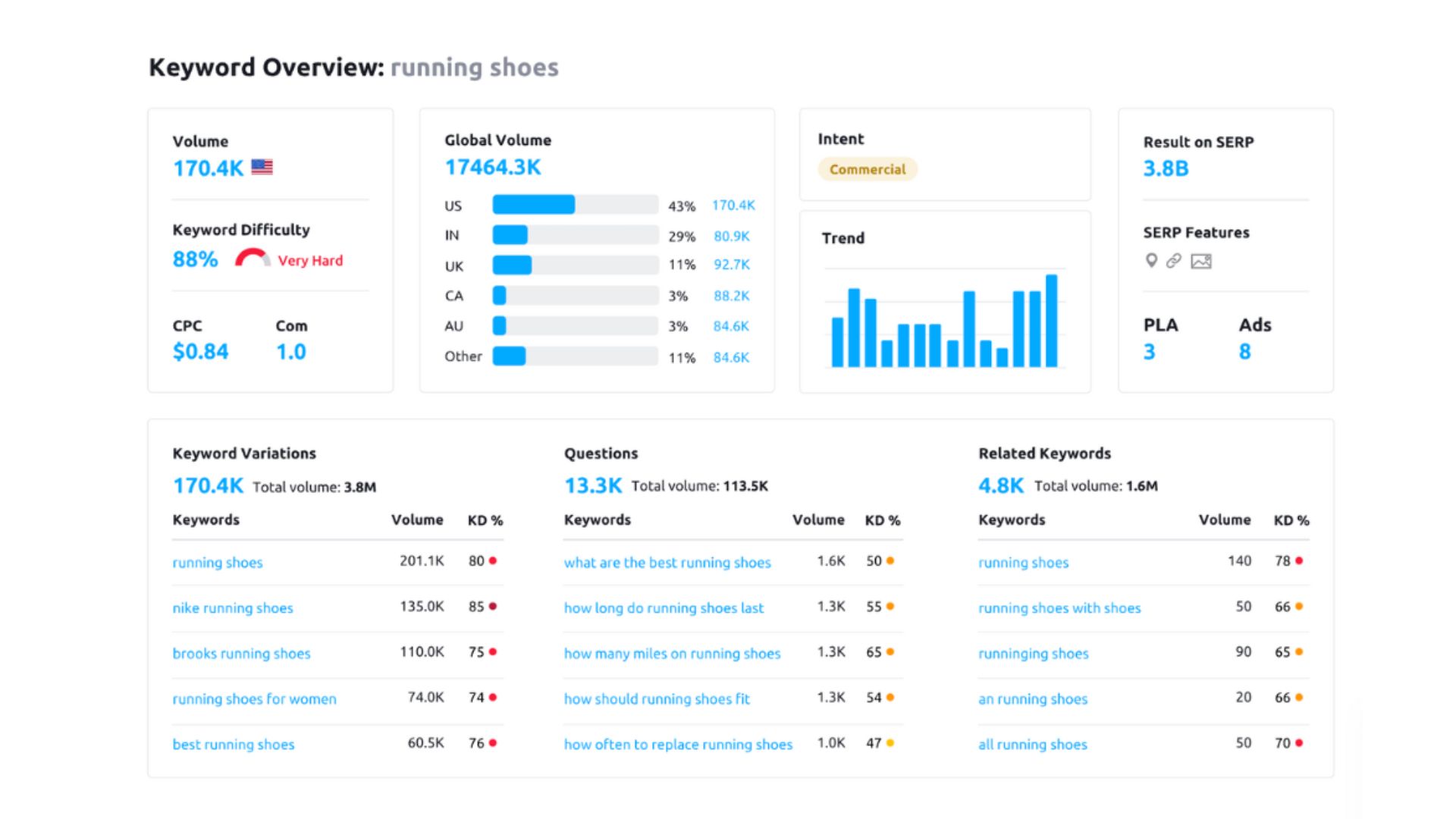
Marketers can use tools like SEMrush to plug in their domain and view all the keywords they currently rank for.
Tips: Pay attention to higher traffic keywords where you are ranking between 5 and 12! The reason is that they represent an excellent opportunity to boost your traffic and improve your overall success.
Make misleading and low-quality creatives
As we browse the internet, we often see various ads and banners. Some of them seem appealing, while others may appear misleading or low-quality. These ads are usually created by shortsighted affiliate marketers who prioritize the easiest way of making money over producing genuine and high-quality creatives.
However, it’s crucial to understand that the success of affiliate marketing depends on the credibility of the ads. Dishonest or misleading creatives may attract some clicks in the short term, but they could be more sustainable in the long run.
The solution we recommend
As a marketer, working on your creatives and making them as honest and reliable as possible is essential.
For instance, suppose you’re promoting a weight loss supplement. Instead of making exaggerated claims about the supplement’s effectiveness, you can provide accurate information about its ingredients and effects. You can also include genuine testimonials from satisfied customers! It can add credibility to your creatives.
By following these tactics, you ensure the success of your affiliate marketing and build a positive reputation. Your audience will appreciate your honesty & authenticity, ultimately leading to long-term success.
Spam affiliate links
Spamming affiliate links to earn quick money is not worthwhile for achieving long-term success. If you look at social media, you may encounter such scenarios in various groups.
For example, you may notice such posts repeatedly posted by multiple users on Facebook groups. However, such posts can annoy the audience and may yield different results.
In fact, spamming affiliate links without providing value to your audience is simply a waste of time. As novice learners, we may focus more on the posts’ quality over quantity. We may even write about products we know little about to increase the number of posts.
The solution to avoid this mistake:
Blogging is a good idea. By not creating low quality content, affiliates can brand themselves and establish trust with the audience. It can lead to more conversions and long-term success for your affiliate marketing efforts.
Therefore, it is advisable to avoid spamming affiliate links. It also instead focuses on creating valuable content for the audience.
Lack of social proof
Social proof is a powerful tool influencing an individual’s decision-making process. It can take different forms! Some such as product reviews, testimonials, endorsements, and user-generated content.
Marketers often forget about the impact of social proof on building trust and credibility with their audience. This mistake can lead to missed opportunities for establishing stronger connections with customers.
One of the reasons for this neglect is the fear of negative feedback. We understand the worry that incorporating social proof could expose negative comments/ reviews! Of course, it potentially harms conversions.
Therefore, it’s important to remember that negative feedback is sometimes a good thing. It can be used to demonstrate transparency and responsiveness! The thing you need to do is address concerns professionally and openly.
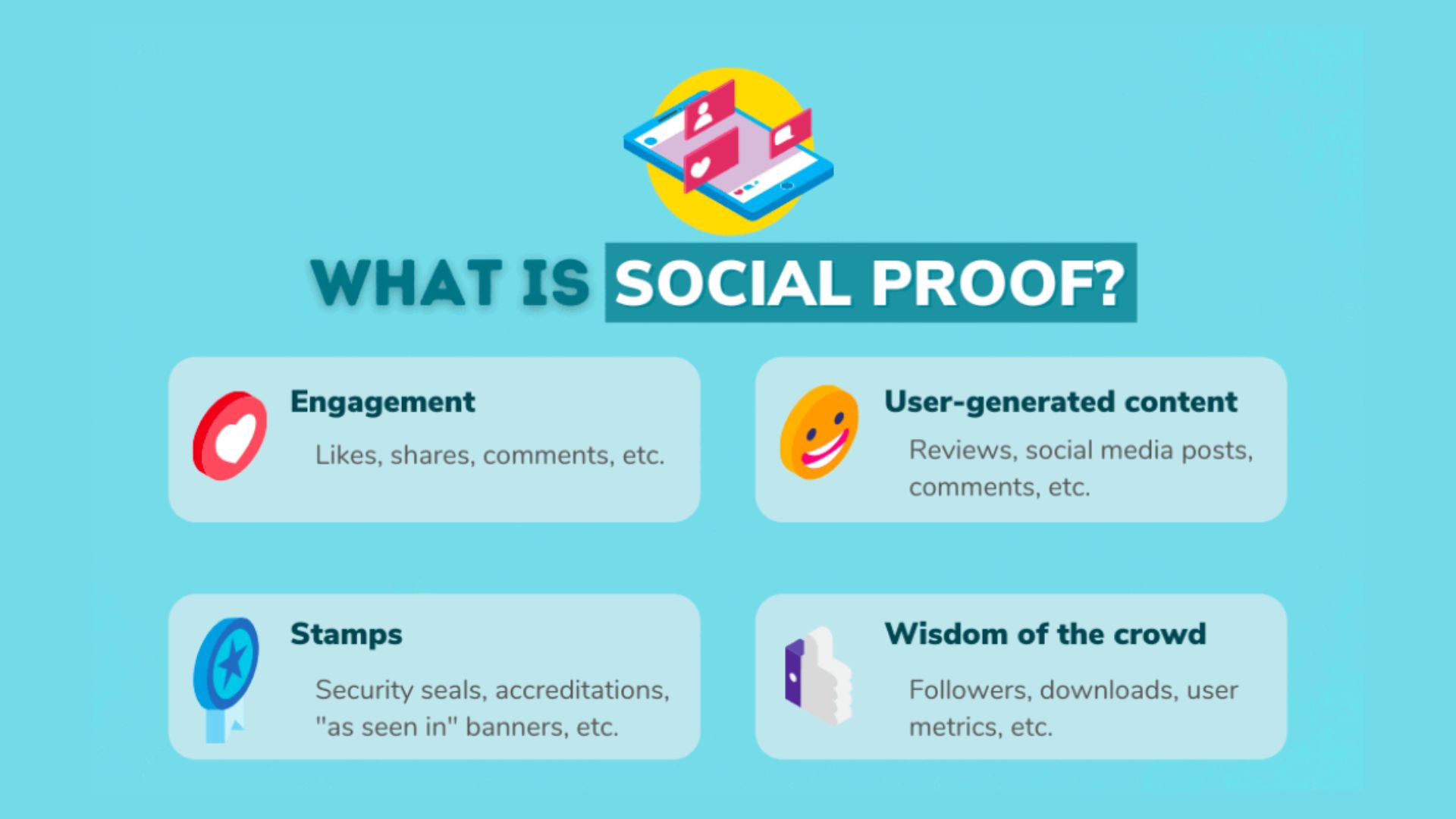
So, how to avoid this mistake?
Firstly, gather testimonials and reviews from satisfied customers whenever possible. Reach out to product vendors or past buyers for endorsements that highlight the benefits of the products you’re promoting.
Secondly, create case studies or success stories illustrating how individuals or businesses have benefited from the products or services you’re promoting. These in-depth narratives can be compelling forms of social proof.
Thirdly, display trust badges and logos of reputable organizations or certifications relevant to the products. These symbols can enhance your credibility.
Lastly, keep social proof elements up-to-date to reflect current endorsements and feedback. Outdated or irrelevant testimonials can erode trust.
No data tracking & collecting
Getting swept up in the excitement of launching your first campaign is easy. But you’re missing valuable insights if you’re not tracking and analyzing your efforts! As a result, that will make it difficult for you to succeed.
Always remember that tracking and analytics are must-have components of any successful campaign.
By monitoring your website traffic, conversion rates, click-through rates & other key metrics, you can identify what’s working well and what’s not! So you can make the right decisions to optimize your campaigns for better results.
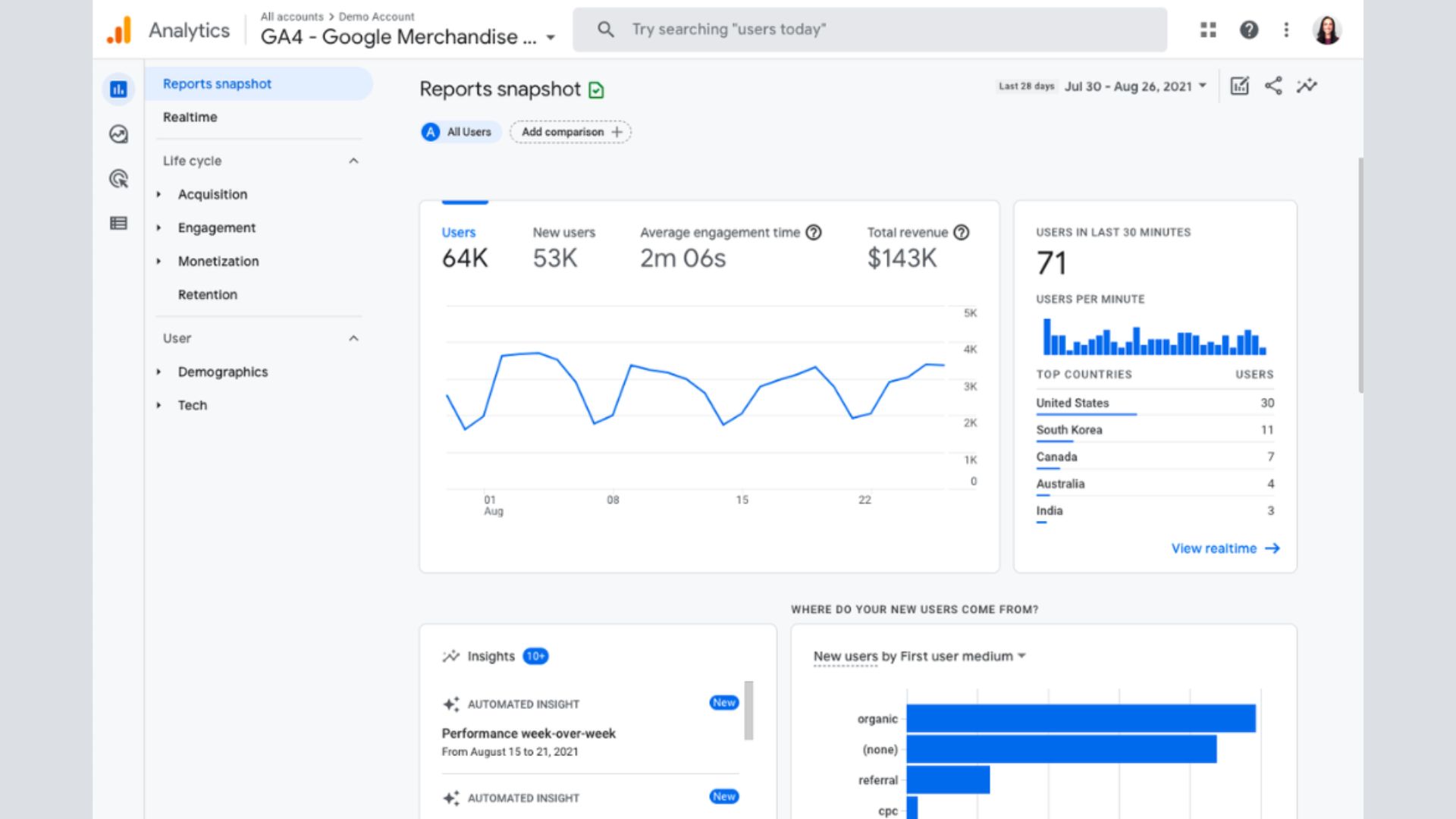
But it’s not just about the numbers.
Tracking and analytics can help you understand your audience’s behavior. You also identify trends and patterns and develop more effective marketing strategies. The more you know about your audience and their preferences, the better you can tailor your campaigns to meet their needs and drive conversions.
The solution to avoid this mistake
It’s simple: start using them from day one. Don’t wait for the “big start” or count your first attempts as a trial. Every day you work on your campaigns is an opportunity to collect valuable data & gain experience. And all we know is that they can translate into future profits.
You can easily track your data using tools like Google Analytics or affiliate marketing tracking software.
Lack of basic SEO knowledge
Affiliates often ignore the importance of SEO, leading to poor results. While other marketing options are available, search engines are still the most dominant traffic source.
There’s a fundamental SEO checklist:
- Keyword Research. Identify the primary and relevant keywords your target audience uses to find products/ services.
- On-Page SEO. Check your website’s content and HTML source code. It includes title tags, meta descriptions, headers, and body content.
- Technical SEO. Check the website is easily crawlable & indexable by search engines. It includes optimizing your site’s URL structure, map, robots.txt file, and speed.
- Content Creation. Regularly create high-quality, original content that is valuable to your audience. Please do not forget to include your target keywords.
- Link Building. Acquire high-quality backlinks from the reputable websites. It can improve your site’s authority and rankings.
- Mobile Optimization. Ensure your website is mobile-friendly. More and more people use mobile devices to access the web, and search engines favor mobile-friendly websites.
- Local SEO. Optimize the site for local search if you’re a local business. It can include creating a Google My Business listing and getting positive customer reviews.
- Analytics and Reporting. Use helpful tools like Google Analytics & Google Search Console to track your SEO performance and make data-driven decisions.
Rely too much on organic traffic
While selling products is crucial to earning revenue, your sales largely depend on your website’s traffic. While search engine traffic is essential, it’s not the be-all and end-all of generating traffic. Many marketers focus solely on search engine traffic, but there may be better options than that.
The solution we offer:
Google may only sometimes rank your pages! You must focus on generating traffic from other sources like referrals, social media, and direct sources.
By diversifying your traffic sources and focusing on quality content, you’ll be well on your way to generating more revenue through affiliate marketing.
Neglect review your performance
This is one of the common mistakes affiliate marketers can make!! So simple to understand!
Because you need more time, focus on immediate tasks, or think that once a campaign is set up, it can run independently without further evaluation.
The solution
Regular data analysis is a fundamental and highly effective solution to avoid this mistake. It helps provide continuous feedback, which is crucial for the success of any campaign.
By analyzing data regularly, you can identify the areas that need improvement or adjustment. This way, you can make informed decisions and ensure your campaigns perform at their best.
What Is Affiliate Marketing?
Affiliate marketing is a performance-based marketing strategy! Affiliates will earn commissions by promoting products/ services from merchants. They market these products to potential customers through various channels. And when a sale/ desired action occurs, they receive a portion of the revenue.
Usually, there are four entries in the affiliate marketing process:
- Merchant
- Affiliate
- Customer
- Affiliate Network
Why do People Often Make Those Affiliate Marketing Mistakes?
We assume that every affiliate has made at least one mistake listed above. So what are the reasons?
Lack of Experience
Many beginners need prior experience to enter the affiliate marketing industry. They may not fully understand the complexities and nuances of affiliate marketing.
The knowledge includes SEO, content creation, audience targeting, and conversion optimization. They may struggle to identify profitable niches, and select the right products! And even execute effective marketing tactics.
Over-Eagerness
The desire for quick results and substantial income drives some affiliate marketers. This eagerness can make them rush into campaigns without proper planning, research, or a well-thought-out marketing strategy.
Over-eagerness often results in poor decision-making, as marketers prioritize speed over quality.
Peer Pressure
Observing successful affiliate marketers within the community can create a sense of pressure to emulate their strategies.
Blindly following others can lead to strategies mismatched with the marketer’s niche, audience, or goals. It can result in subpar results and wasted efforts.
Risk Aversion
Fear of failure and financial risk can lead affiliates to play it safe and avoid experimentation. They may hesitate to allocate resources to untested strategies.
While risk aversion can prevent financial losses, it can also hinder growth and innovation. Marketers who refrain from experimentation may miss opportunities to discover more effective marketing methods.
Neglecting Education
As people age, they often neglect the importance of learning & keeping up with the latest industry trends and best practices. It is due to laziness and the decline in memory function, leading to outdated strategies and missed opportunities.
Failure to Adapt
The affiliate marketing landscape is dynamic! It frequently changes search engine algorithms, competition levels, and consumer behavior. Marketers who fail to adapt their strategies to these shifts may find their tactics becoming less effective over time.
Overlooking Analytics
Marketers’ ability to recognize and rectify errors can be compromised! When? When you disregard or misconstrue performance data.
Marketers may only continue effective campaigns with data-driven insights or optimize their efforts.
Isolation
Affiliate marketing is commonly pursued on an individual basis. It can result in marketers feeling isolated from their peers and unable to receive feedback or collaborate. This isolation can create difficulties learning from the biggest affiliate marketing mistakes and seeking advice!
Of course, it leads to a need for more access to valuable insights and best practices shared within the affiliate marketing community.
FAQs
What is the biggest problem in affiliate marketing?
The most significant challenge for marketers in affiliate marketing is the fear of stepping out of the comfort zone and embracing a learning mindset. Success often lies beyond the safe and familiar.
Those hesitant to take risks, try new strategies, and persist through challenges may struggle to thrive in this market. So, how do you excel? Aspiring affiliate marketers must be brave, eager to learn, and determined to overcome obstacles.
What are the risks of affiliate marketing?
Affiliate marketing can be a risky business. Third-party affiliate programs may deliver the expected results inconsistently. And affiliate commissions can fluctuate. Furthermore, affiliate marketing programs can shut down unexpectedly. As a result, it will leave you without a source of income.
Relying solely on organic website traffic can also be risky! Why? As changes to search engine rules or difficulties with search engine optimization (SEO) can significantly impact the number of visitors to your site.
So, it is essential to be aware of these risks and to plan accordingly to minimize their effects on your affiliate marketing business.
How to be a successful affiliate marketer?
Well, there’s no one-size-fits-all recipe for a successful career in affiliate marketing. If there were, we’d all be millionaires by now!
But here’s the secret sauce in all successful marketers’ journeys: a relentless hunger for knowledge. They read, learn, apply, and test tirelessly. And guess what? They don’t give up.
It’s all about having the right attitude, persevering through the challenges, and gaining experience. With time, they figure out the best strategies, and that’s how they keep earning more and more money.
Conclusion
This blog post listed 17 common affiliate marketing mistakes every marketer should avoid! We know that failure lessons can help you save time and make the right decision in similar situations!
So, why don’t we take advantage of it to go faster? We believe that you will better understand this market when you carefully read all the knowledge provided! With the right mindset, strategy, and perseverance, anyone can become a successful marketer and achieve their financial goals.
Thank you for reading!


